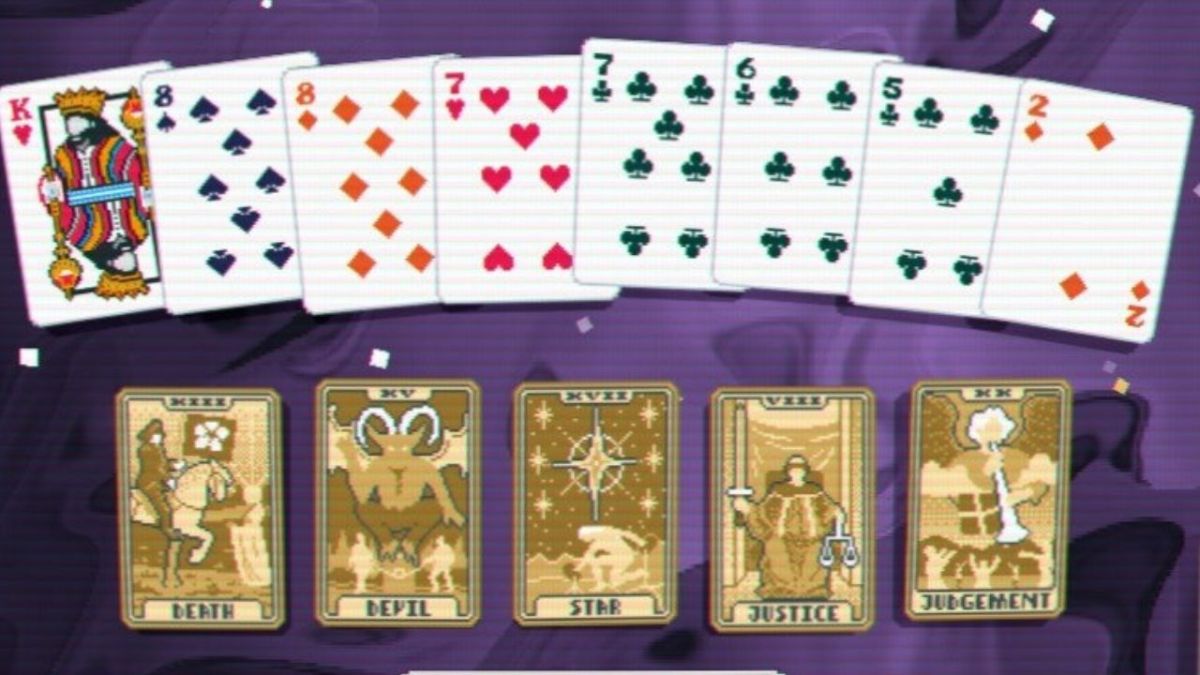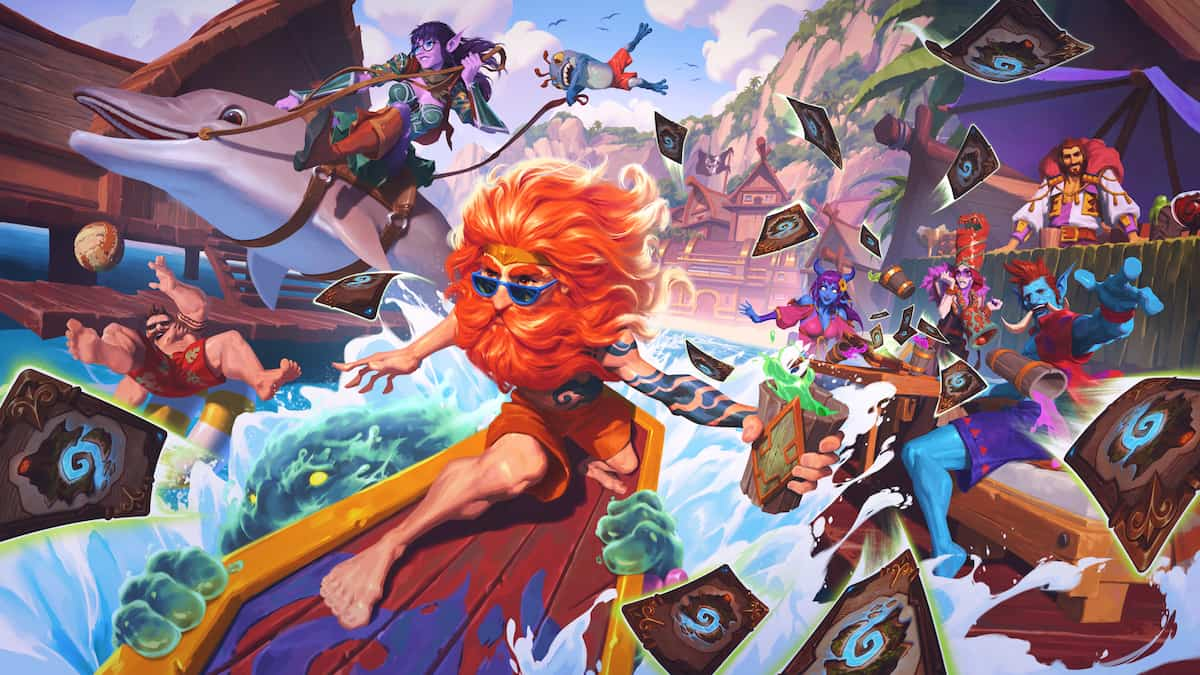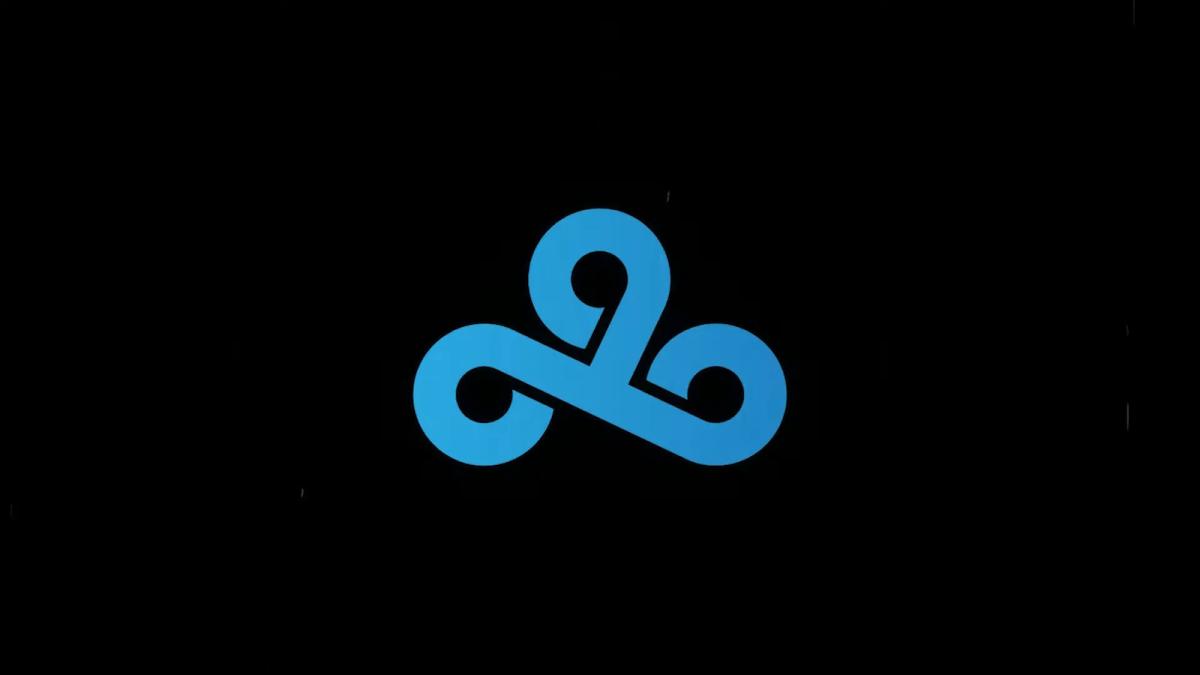Introduction
Hey, guys! I’m Chriseroi, a relatively new Hearthstone player who started in June of 2015 and has been playing and enjoying it ever since! I love reading a lot of these guides on Hearthstone Players from various parts of the community, and I wanted to contribute to the community by giving you a peek inside my own little amusing journey, whether it’s climbing up the ladder, getting better at Arena, or even just me building up my collection. I really hope you enjoy reading these little journals every week as much as I enjoyed writing them!
This is part seven of a continuing series. Be sure to read the previous entries as well!
Oh, and fair warning: this is going to be a pretty wordy and color-less entry when compared to my previous journals, so if you don’t like that, I apologize in advance. But hey, maybe you’ll like it! Who knows?
Interlude: Solidification
After Nate finished opening the packs he had been waiting all month to open, he slumped back in his chair, and looked at his collection.
He felt empty inside.
He didn’t feel empty in a depression-like sort of way, but more like he couldn’t feel excited about all the cards he had unpacked. There were over 100 new cards he now had in his possession, but none of them were really exciting in a way where he couldn’t wait to jump back into Hearthstone and play the day away climbing the ladder and delving into Arena and it was all just strange to him because of that.
Was he getting bored with Hearthstone? And if so, was it because his friends weren’t actively playing anymore? In a couple days, he could barely see himself loading up the game for daily quests anymore, and he couldn’t even imagine Hearthstone being something he looked forward to in a couple weeks…
Nate’s mind wandered back to the beginning of his Hearthstone days. His best friend had gotten him into the game, and every chance they got they would play each other and take turns chiding the other over a bad play every now and then. Climbing the ladder turned into a competition, to see who could get the farthest by the end of the season, and Arena became a testing ground so they could each gauge their skill on an even playing ground. If anything, the game became a chance for them to bond together and have fun, all while getting into a cool and inviting competitive scene as they grew more confident with their skills. That was all long gone by now, however.
As Nate kept thinking about the past and his unsure future, the phone beside him vibrated endlessly, as if he was forgetting something important…
A Primer on Cooperation
If you, the reader, would mind taking a quick break from Hearthstone for a couple minutes, I want to discuss cooperation using the game theory, and later tie that into Hearthstone at the end. Don’t worry, it’s nothing serious besides being just a fun little distraction, and I think it’s important to know in life outside of Hearthstone as well. Okay, without further ado, here goes.
— — — — —
The prisoner’s dilemma is a thought experiment that uses game theory to examine why people do or don’t cooperate. Let’s say Apple and Banana have committed a serious crime. Apple and Banana are caught by the police, and sent off to separate cells far away from one another. In other words, there’s no way for them to contact each other. And they’re not, like, telepaths or something. So that’s the setup.
So a detective shows up. He visits each cell, and tells them both exactly the same thing. It goes something like this…

“You can both clam up, if that’s what you want. We’ve got enough to put you both in the slammer for two years if you do. Now, if you flip on your pal over there and tell me everything… I can get your sentence reduced to one year. That means your buddy’ll serve fifteen, but that ain’t your problem, right? Course, if he decides to spill the beans, it goes the other way. He gets one year… And you get to spend fifteen years eating government cheese. You’re probably wondering if both of you confess. Well, I can shave off a little time for saving me trouble, but you’ll still both do ten years. So, punk, what’s it gonna be? You gonna give me what I want? Or you gonna keep that trap shut? Course, I told your partner the same thing I just told you. I wonder if you can trust him to keep the cat in the bag…? No rush. I’ll give you plenty of time to think about it.”
What would you do? Say you were in Apple or Banana’s shoes?

Your first thought might be that if Banana keeps his mouth shut, then the best choice for you is to spill the beans; that way, you can only serve one year. But if Banana confesses too, then the smart thing would be for you would be to still do the same; after all, if he cuts a deal and you don’t, then you’ll spend fifteen years in prison. Confessing would shave five years off of that. Then it seems like the best choice is always going to be to confess…
That’s interesting, but you’re forgetting something important: the fact that Banana will be thinking the same thing. So you’ll both confess, and you’ll both end up serving ten years. If you’d both trusted each other, then neither of you would have served more than two years. But because you both made the decision based on your own self-interest, you’re going to spend eight more years in prison. In other words, the logical decision leads not only to a less desirable outcome on the group level, but also a pretty terrible situation on the personal level too. In other words, selfish but logical decisions hurt everyone, and they hurt you.
So now your next thought is that you should keep your mouth shut, right?
No. I mean to say that you should be doing the opposite. If you’re going to make the most logical choice here, the only option is to spill the beans. You might be thinking that I just explained why that was a terrible idea, but I didn’t. It’s not the prisoner’s solution: it’s the prisoner’s dilemma. Even though there’s an outcome where everybody’s happy, the choice you’d have to make for that outcome isn’t the rational one. You want to pick it, but you can’t. A dilemma.
Unless we can be certain that Banana will choose to stay silent, we don’t have a choice: We have to choose to confess. Unfortunately, we don’t have any way to know that for certain. That means we have to make the rational choice. It would be great to make the right choice…but we can’t.
— — — — —
My motivations for playing Hearthstone are complicated, but I feel that the prisoner’s dilemma accurately represents the flow of Hearthstone in a way that many don’t understand. We play Hearthstone as a game, but not to win, but to progress. Let me refer to “staying silent” as Ally and “confessing” as Betray. In a way, my opponent and I are Apple and Banana; if we both trade evenly and play the game out, we both progress, or in other words, “Ally,” On the other hand, making huge value plays that leave your opponent behind and bring you in the lead only allows you to progress while the other falls behind, or in other words, one of you has “Betrayed” the other. However, if both of you make high value plays and outdo the other simultaneously, the game is brought ever quicker to a close while neither of you are in the lead, as both of you have “Betrayed.”
In short, what I’m trying to say is that Hearthstone is a game of cooperation, and the goal is to either be on the benefitting end of the “Betray” choice or on either end of a mutual “Ally” choice. In Hearthstone, some people play to “Ally,” and while that is a safe move to make, it is not always the right call, as it might cause you to miss lethal as you continue to play defensively even as you fall behind. What you need to do is play evenly in the early game of Hearthstone, and as your opponent does the same and eventually AT ONE POINT when their guard is down and you have the advantage, take the board or make that high value play and put yourself in the lead and your opponent at a loss. Basically, playing defensively is the safer option, but when you see that opportunity to play offensively and cripple your opponent, take it! It’s how you win games, especially when you’re behind, because your opponent will always make that ONE bad play at some point in each game, and whether that bad play is minor or major, it will always leave some opening for you to make your move.
And that concludes my rambling on the prisoner’s dilemma. It probably sounded a little gimmicky and forced, but it’s an interesting theory that I feel is intertwined in every match of Hearthstone, although probably not as pronounced as I made it seem to be.
A New Favorite
No new cards this week, unfortunately, which is fine! That’s totally fine.
I already said I was going to look at Priest and see if I could fashion some sort of deck for him utilizing many of the fantastic cards that WotOG gave him, and boy did they ever.
I’ve always loved what Priest could do before WotOG, but I just never had the right cards to make it work very well competitively, especially since I was missing so many essential cards such as Lightbomb and Cabal Shadow Priest. However, with all the amazing cards I unpacked from my mega-pack opening session a while back, it turns out that I can put together a mean cthun Priest deck, and boy, does this one shine.
The idea behind the brand-new cthun Priest is to use efficient cthun synergizing minions and combine them with standard Priest minions along with neutral minions that assist with card draw in order to build a deck with steady early game and powerful late game through the tempo gain provided from plentiful removal and an abundance of card draw. The playstyle of this deck is very similar to the one used by Tempo Mage, as we focus on using a balanced decklist to fight off many other deck archetypes. Win conditions are strong as well, since we can either draw the game out and win through a strong amount of minions that are constantly being placed on the board, stalling with twin-emperor-veklor, or we can end with a major cthun burst in the late game – and if the game draws out towards fatigue, we can win with a second cthun burst through Doomcaller. A total of three win conditions make this deck a very strong one to compete with, for sure. And it feels fun to play! And I, for one, love decks that are fun to play.
I’ve tested out this deck enough to get to Rank 14, and I’m positive if I put a little more time into the game, I could easily get to Rank 10. But that’s enough about this deck for now, as I’m content enough with how well it performs and believe that it could become my new go-to deck when I play a quick match. It’s really that good!
As for what’s next for the next journal, I’m thinking looking at Druid or Shaman for the next deck! The thing is, I’m not entirely sure which to pursue first. They both received fantastic cards from the WotOG expansion, but I don’t play either of them that much, so this will be new ground for me, probably even more so than creating that cthun Priest deck… I’ll have to think about it after a quick snack or two.
Closing
I apologize again if the general extra wordiness of this journal turned some people off from reading through this journal, but for those that read until the end, thanks for reading! Not all of my future journals will be like this, if any do end up like this one (unlikely), but I still really hope you enjoyed what I’ve written here, and I’ll try my best to write a new one every now and then. Oh, and hey, if you guys want me to write up a little something-something, like a guide or whatever, for any of the decks I’ll be talking about here, just let me know and I’ll see what I can do. See you guys in Hearthstone!





Published: Jun 27, 2016 12:22 pm